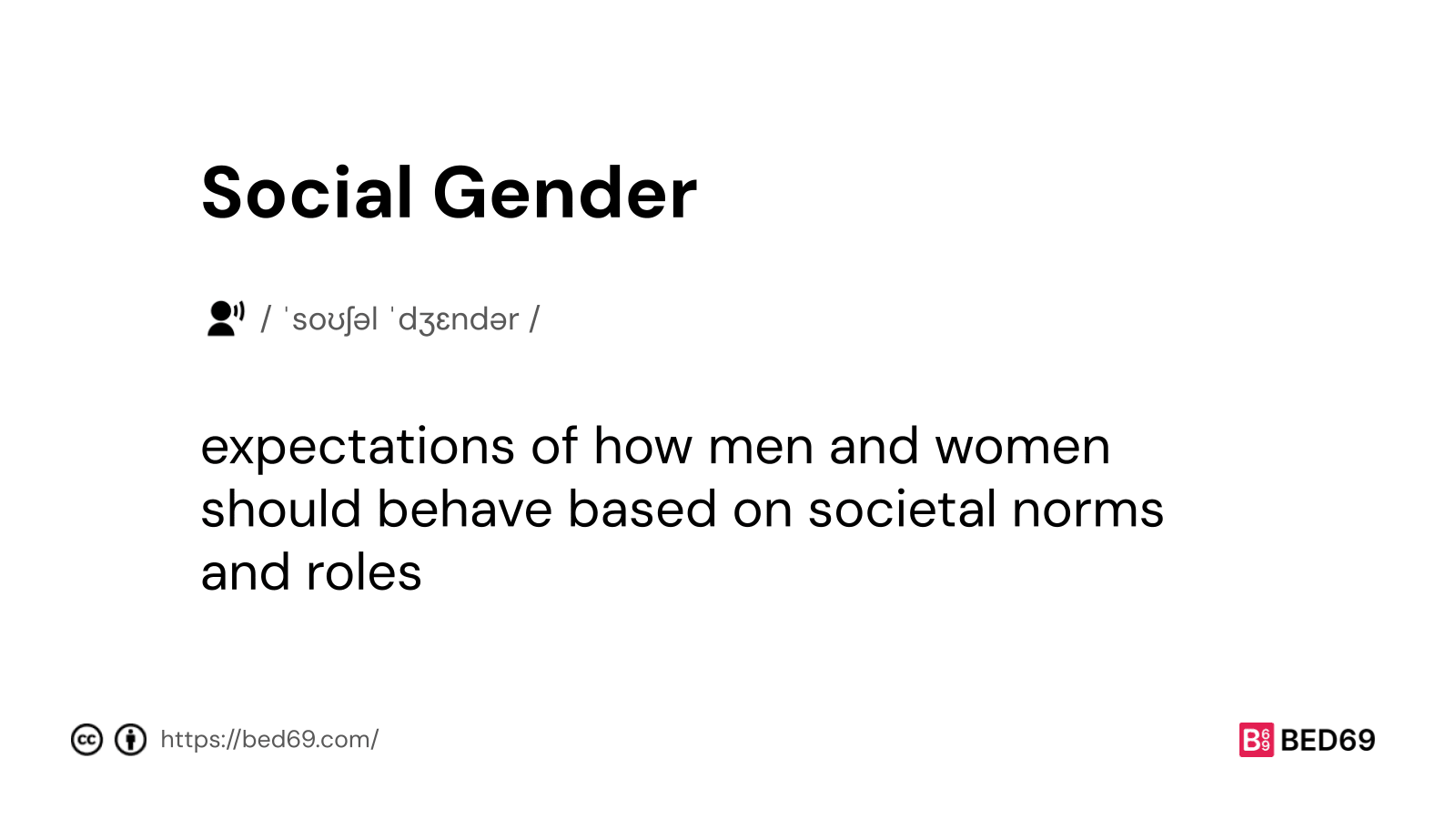What is Social Gender?
Social gender is about the roles and behaviors society expects men and women to have based on their biological sex. It’s not the same as your biological sex. It’s about how society thinks men and women should behave. These expectations can vary based on factors like race, class, and time period.
Social Gender pronunciation: / ˈsoʊʃəl ˈdʒɛndər /

What are common misconceptions about social gender
Common misconceptions about social gender include the belief that it’s the same as biological sex. People often confuse gender with sex, assuming they are interchangeable. Another misconception is that social gender roles are fixed and universal. In reality, gender expectations can vary greatly based on cultural, societal, and historical contexts.
Furthermore, there’s a misconception that everyone fits neatly into traditional gender categories. In truth, individuals may identify beyond the binary notions of male and female, challenging conventional ideas of social gender. It’s also important to note that social gender roles are not solely determined by biology but are heavily influenced by societal norms, upbringing, and environment.
Understanding these misconceptions is crucial in promoting inclusivity and acceptance of diverse gender identities and expressions. By recognizing the complexities of social gender, we can move towards a more inclusive and understanding society.
How does social gender affect daily interactions and relationships
Social gender shapes how we behave and relate to others in our daily lives. It influences the way we communicate, express emotions, and make decisions. These expectations can impact how we interact with friends, family, colleagues, and even strangers. For instance, social gender may influence the way we show affection, assert ourselves, or engage in conversations.
In relationships, social gender can play a significant role in determining power dynamics, responsibilities, and expectations. It may affect how individuals navigate conflicts, share household tasks, or make joint decisions. These dynamics can impact the overall health and satisfaction of relationships, shaping the way partners understand and support each other. Understanding how social gender influences interactions can help us navigate relationships more effectively and promote mutual respect and understanding.
Explore other interesting terms:
